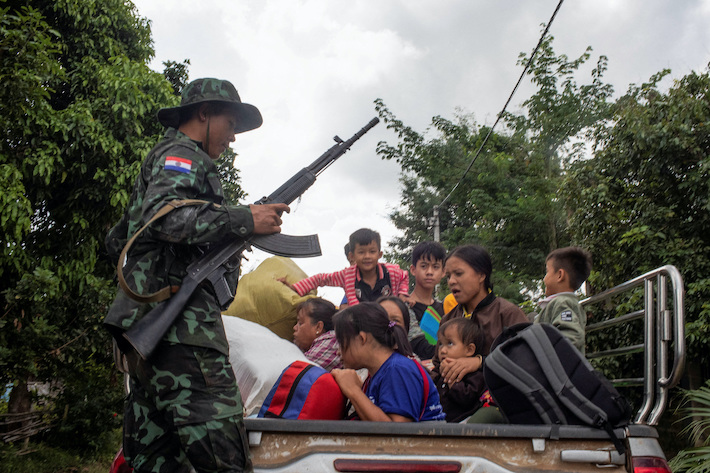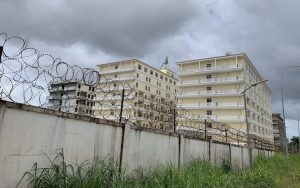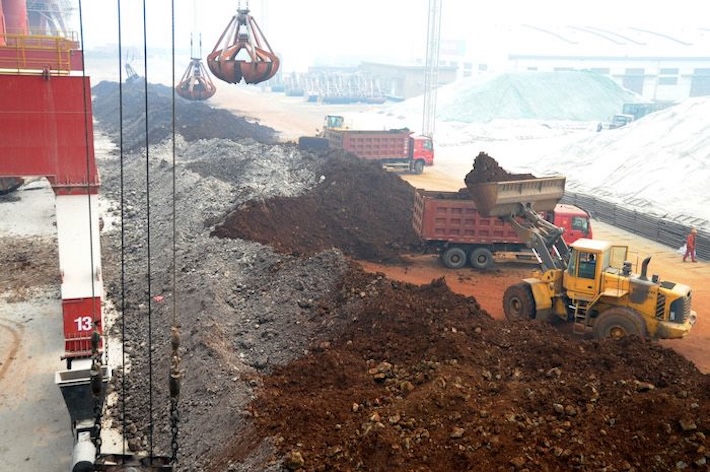China has condemned an attack on its consulate in Mandalay in the central north of Myanmar late on Friday, which is likely linked to the country’s ramped up support for the unpopular military regime.
A spokesperson for China’s Foreign Ministry said on Monday the country had lodged “serious representations” with authorities in Myanmar and urged them to make every effort to arrest the perpetrators.
It follows an apparent grenade attack on the consulate in the country’s second largest city at around 7pm local time, which damaged the roof of the two-storey building but is not thought to have caused any deaths or injuries, according to exile media outlets.
ALSO SEE: China Reduces Key Lending Rates in Bid to Rev up Economy
Security forces are investigating the incident in a bid to arrest the “terrorists” responsible for the blast, according to a military statement sent to media outlets on Saturday, AP reported.
Lin Jian, a foreign ministry spokesman in Beijing, confirmed on Monday that a blast occurred at the consulate, saying “China expresses its deep shock at the attack and sternly condemns it”.
“China has made stern representations to the Myanmar side,” Lin said, according to Reuters.
Myanmar has endured three and half years of bitter conflict that has left thousands dead in many parts of the country, destroying the local economy and displacing more than three million citizens since the military ousted a new government led by Aung San Suu Kyi just before it was due to take office in February 2021.
Beijing may fear junta collapse
The latest incident could well be a warning to Beijing, which is seen to have increased its support for the Burmese military in recent months amid possible concern about Myanmar’s domestic turmoil and the increasing power of some ethnic armed groups.
Beijing ramped up arms shipments to the junta, delivering a second batch of six FTC-2000G fighter jets in August, according to a VoA report. The planes are blamed for prolonging the civil war and causing huge civilian suffering, with casualties throughout the north.
There have also been reports of Chinese technicians working in Myanmar’s defence industries, assisting with the production of munitions, along with North Korea and probably Russia. “There is clearly some technology sharing. A new shell designed for drone warfare is a copy of a Chinese-produced munition,” RFA analyst Zach Abuza said last week.
China’s main concern since the coup has been protection of its investments, such as dams and valuable jade and rare earth mines in Kachin State, a big copper mine in Sagaing (an area wracked with fighting), and the oil and gas pipelines that stretch from from Kyauk Phyu in western Rakhine state up to Yunnan.
Border trade has been hit, both with China and Thailand, and Beijing closing a handful of trading gates and cutting power and internet access to parts of Shan State to try to rein in rebel forces that have taken control in the northeast since late last year.
China appears to be worried by not only unrest near its border, but also the government that could emerge if the Myanmar military collapses, given the junta has lost control of about 90 towns and large regional bases, mostly in the ethnic ‘horseshoe’ across the country’s north, as resistance forces move closer to Mandalay.
Multiple reports suggest China fears a downfall of the junta could harm its interests, jeopardising its access to the Indian Ocean, via the special development zone it has in Kyauk Phyu port, and limit its lucrative harvest of minerals and timber, plus its capacity to exploit a weak and divided neighbour.
A report by Myanmar Now on October 8 cited a “leaked document” which quoted China’s Special Envoy for Asian Affairs Deng Xijun reportedly saying that neither the opposition National Unity Government or the National League for Democracy can “replace the military’s role” in Myanmar.
Deng allegedly told leaders of the United Wa State Army in late August that China would not accept a collapse of the regime or victory by the resistance, which it deems to be “close to Western countries.”
And now there are reports that Myanmar’s senior general Min Aung Hlaing is preparing for a visit to Beijing for talks with Premier Li Qiang.
China has been pushing hard for the military to hold an election – an idea many citizens and resistance groups oppose because of the military’s long record of rigged ballots.
The opposition NUG has gone out of its way to say it does not oppose Chinese interests in Myanmar and would respect them if it eventually takes power. And most ethnic groups avoid any action that would upset the ‘big bear’ in the north.
Beijing wants a quick end to Myanmar’s civil war. But many suspect this stems from China’s fear of something that could be a far greater worry – a democracy on its doorstep.
- Jim Pollard
NOTE: Further details were added and minor cuts to the text undertaken on October 23, 2024.
ALSO SEE:
ASEAN Seeks End to Myanmar War, Swift Deal on S China Sea
Weak ASEAN Nations ‘at Risk of Evolving Into Scamming States’
Foreign Investment in ASEAN Tops China For First Time in Decade
Thai Task Force to Help Stop Arms Funding For Myanmar Military
Suu Kyi Adviser Calls For Sanctions on Myanmar’s Central Bank
UN Rapporteur Calls on Thai Banks to Stop Aiding Myanmar Junta
Scamming Compounds in SE Asia Stole $64 Billion in 2023: Report
US, UK and Canada Ramp up Action Against Myanmar Junta
Myanmar’s Central Bank Cancels 120 Forex Licences – RFA
UOB to Cut Ties With Myanmar Banks on Sept 1 – Nikkei
EU, US Sanctions Aim to Curb Funds for War in Myanmar
Crime Gangs Control Some Myanmar, Laos Economic Zones: UN
Myanmar Heading For State Collapse, ICG Warns























